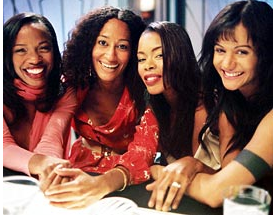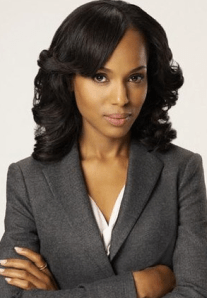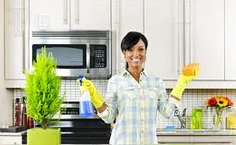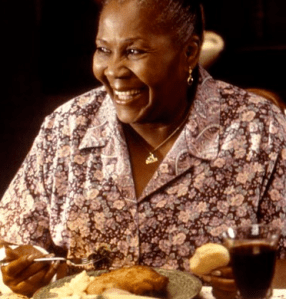
As an African-American woman and television viewer for over thirty years there haven’t been many opportunities to see positive, let alone well-rounded portrayals of Black women on network and/or cable television. As I got older when I would see a black female character on a television show I would keep my fingers crossed and hope that she wasn’t poor, pregnant, ignorant, stoic or in an abusive relationship. Most of the times my wishes went unanswered, but that was just the way it was in Hollywood and for American television.
However, the past ten years has been sort of a watershed moment for black actresses and television in that more black women haven been on television in leading or prominent roles including Nicole Beharie (Sleepy Hollow), Uzo Aduba, (Orange Is the New Black), Danai Gurira (The Walking Dead), Angela Bassett (American Horror Story), Gabrielle Union (Being Mary Jane), Chandra Wilson (Grey’s Anatomy), Raven-Symone (That’s So Raven), Jada Pinkett Smith (Hawthorne) and Regina King (Southland). No one has had a bigger role though than Kerry Washington as Olivia Pope in Scandal. Combine that with scripted or reality shows that have a significant or mostly black female cast such as Girlfriends, Soul Food, Real Housewives of Atlanta, Love and Hip Hop – black women are more visible than ever on our televisions and computer screens, but also in our movie theaters.
Yet, even with the variety of black female roles on television Hollywood still traffics in obvious stereotypes of black women when writing black characters.
Below are some those stereotypes and imagery that still rear their ugly head in portrayals of black women on the small screen – no matter our evolving educational, cultural and economic impact on American society:
1. They are noticeably loud. Everything they say is said in such a booming and emphatic manner in comparison to others around them. Are they suffering from a debilitating auditory condition? Is their loudness due to a fact they don’t care that their voice is dominating the conversation and causing heavy wincing? The American Medical Association has yet to commence research regarding this ‘Hollywood’ medical condition though the problem still exists.
2. They browbeat their loved-ones as a sign of affection. They will tell their husbands, siblings, sisters and friends how much they’ve screwed up their work life, relationships or financial situations in sometimes amusing but mostly painful and humiliating fashion – all because they care about them. They’ll eventually express how much they love the person, but not before making them feel really bad about themselves.
3. They are born with Southern accents no matter where they live. Whether they were born in New York, California or somewhere in-between, they will eventually sound like they were born and raised in the Deep South. Maybe it’s something they have picked up subliminally from their mythical great aunt or grandmother while hearing their mythical tales of the how glorious the mythical South was for blacks back-in-the-day as long as they worked hard and lived right.
4. They are addicted to cleaning. Nothing makes their day like having a clean home, especially a spotless kitchen since that’s where they love to spend most of their time (more on that later). Sniffing the air of a clean home and smiling happily when their family comes home and acknowledges their hard work is the highlight of their day. Because of course every black woman has had a grandmother, mom or aunt who used to clean white people’s homes for a living.
5. They are genetically pre-disposed to suffer hair loss. They appear to become follicly-challenged once they enter their early teens, hence the heavy usage of wigs, weaves, braids and extensions to supplement their thinning hair and/or to protect what little hair they have left. By the time they’ve entered their forties full-fledged wigs have become the norm for most of them.
6. They are biblical scholars. They can pull a quote from the bible as fast as Dirty Harry can draw a gun. Old Testament. New Testament. Revised Standard. King James Version. They keep one around at all times on the rare occasion that they have to reference it as a refresher or to fend off evil spirits.
7. They have unstable necks, resulting in excessive circular head movements. On occasion their heads become unusually heavy when they experience a bout of emphaticism (aka making a strong verbal point to their conversation partner). When this situation occurs their neck can no longer support the size of their head, hence the head-nod-to-headroll-in-a-counter-clockwise physiological anomaly.
8. Enjoy being sidekicks or third-wheels to white women. This is mainly due to their innate shyness that they cover-up by being extremely bossy towards their white BFFs. However in the rare instance that their white BFF decides to give them a wee bit of limelight the black woman will scurry back to the sidelines because that’s where she is obviously most comfortable.
9. They are always financially-challenged. They are constantly worrying about how to pay their bills because they never have enough money to pay their bills. It’s not because they blow money fruitlessly, but that they never seem to have enough money to do anything due to working one or more crappy jobs because they’re a single parent or have to support a sick mom, a deadbeat husband or a lazy boyfriend.
10. Love to cook jumbo-sized, down-home meals no matter the occasion or time of day. Black women are true believers of their own axiom that ‘All problems can be solved over a home-cooked meal.’ Accordingly they will break out their pots and pans for Thanksgiving-styled meals throughout the year, whether the problem is big or small, or even if a grilled cheese sandwich and a bowl of soup would suffice.

11. Their life goals are very exacting. It seems that their dream jobs are to own a hair salon, be a nanny to a precocious white child, a talk show host, music video vixen or to get married. Nothing else is remotely acceptable to them.
12. There is a correlation between their weight and their behavior. If they’re skinny they are mean and vain. If they’re plump they are warm and sassy. Average-sized black women seem to have low survival rates, hence they’re rarely spotted beyond their teen years.
13. They have infinite amounts of wisdom no matter the topic. Whatever the situation they will find a cliche, parable or homily for the moment in an attempt to make you feel better or to sum up the situation in case you have no clue what’s going on. Like your own personal ‘Gone With the Wind‘ Mammy.
Black women are not asking for Hollywood to portray them as flawless human beings or, as some sort of uber black female that is attractive, strong and respected. Cinematically, that has always been the demand from African-Americans and civil rights organizations because of the decades-long onslaught of negative imagery of black people, especially black men.
However, having black female characters who have ‘made it’ professionally, academically or financially but still act stereotypically ‘ghetto’ is incongruous and frankly asinine, yet it still happens (see ‘Angela’ in Why Did I Get Married movies).
Black female characters should run the gamut just like their white female counterparts. Hollywood producers should portray us as rich, poor, upper class, lower class, smart, clueless, serious, sassy, tough, scared, healthy, sick, overweight, sexy, nerdy, beautiful, ugly, friendly, deadly and any other social, emotional and economic variations. Why? Because black women are not a monolith or part of some collective Borg where we have the same thoughts, ideas or experiences. We are individuals with similarities and differences – imagine that.
Maybe one day Hollywood will put this particular conversation to rest, but I’m not going to hold my breath. Because for every Olivia Pope Tinseltown will always have black maids waiting in the wings.
As they say, the more things change the more they stay the same.
………………………………….
Related YETBW Blog Post: Learning About White Women From Watching Television.
For more information: The Media, Diversity and Social Change Initiative at the University of Southern California’s Annenberg School for Communication and Journalism describes itself as the “premiere research think tank in the world dedicated to addressing issues of inequality in entertainment.” It may be a slight exaggeration, but not by much. They do extensive research on diversity and the lack thereof in the entertainment industry. Their work is highly cited by those interested and concerned about the issue. You can read their annual reports and other research here.


Nice blog right here! Additionally your site lots up fast! What web host are you using? Can I am getting your affiliate link to your host? I wish my website loaded up as fast as yours lol|
LikeLike
Thank you 🙂 My blog ‘host’ is WordPress. A lot of blogs and websites (big and small) have joined the WordPress bandwagon. I honestly don’t have any major complaints about them. Maybe a few minor ones…
LikeLike